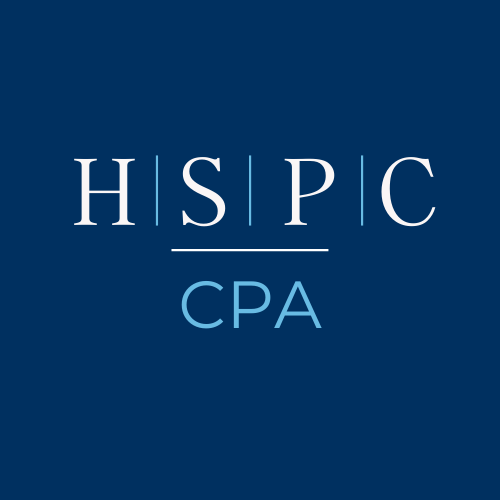Tax saving tips for individuals and businesses in Canada
- Harprithipal Shahi, CPA CGA

- Dec 24, 2020
- 4 min read
As a small business owner, you already know that running a business is a lot of work, and you want to keep as much of what you make as possible. So here are some tax tips to help you save your hard earned money.

You might already know that keeping good records to maximize tax deductions and filing your taxes on time to avoid penalties are some of the general tax saving tools. However, we provide you some more advanced strategies to help maximize tax savings.
Below are some of the Tax minimization strategies for individuals
Invest in RRSPs and TFSAs
If you are an individual who likes to save for retirement than consider investing into RRSP. Contributions made to RRSPs can be deducted from your taxable income, thereby reducing your taxes and/or resulting in higher refund. In addition, funds in an RRSP account grow on a tax-deferred basis. The capital gains and investment income generated in the plan are not subject to tax until withdraw funds in the future. You can borrow from your RRSP to buy your first home or pay for your education.
A TFSA allows you to set money aside in eligible investments and those savings grow tax-free throughout your lifetime. All the investment income in the TFSA grows tax-free and future withdrawals are not taxable.
Income splitting with family members
Family income splitting is a basic tax planning strategy but many Canadians are not taking advantage. If you have a low-income spouse or low-income children or grandchildren, you may wish to consider setting up a prescribed rate loan for income splitting. Read my article for more information on income splitting Here.
Maximize tax credits and deductions available to you
When filing your tax return, ensure that you are aware of the tax credits and deductions that may be claimed by you on your tax return to maximum tax savings. One tax credit that is often neglected is the medical expense tax credit. You can claim a tax credit when total eligible medical expenses exceed the lower of 3% of your net income or $2,397 in 2020. You may want to keep good records of all the medical expenses as well the receipts, so that you can easily determine whether you qualify for the credit. These types of expenses accumulate quickly and could potentially reduce your taxes payable.
Passive investment income
For small business owners, you can claim small business deduction on the first $500,000 of active business income in a Canadian-controlled Private Corporation (CCPC). This deduction reduces the overall corporate tax rate, as a result, there may be significantly more money left in your corporation for investment to earn investment income which is known as passive income. The government did not like the idea and introduced new rules effective in 2019 which affected the amount of income that’s eligible for the federal SBD. The SBD is generally reduced by $5 for each $1 of passive income over $50,000 in the previous year. Once passive income reaches $150,000 in the previous year, none of the current year’s business income may be eligible for the lower tax rates.
A tax planning tip is to consider a buy and hold strategy to defer capital gains if your corporation is reaching the $50,000 limit for passive income in 2020. Another tip is to consider whether an Individual Pension Plan or corporately-owned exempt life insurance may be appropriate, as income earned within these plans will not be treated as passive income.
Home office expenses
In November 2020, the federal government announced simplified procedures for claiming home-office expenses for employees who were required to work from home due to COVID-19 pandemic.
There are two methods to claim home office expenses
1. Temporary flat rate method
Under the temporary flat rate method, you are not required to keep track of expenses, or allocate some expenses between work and personal use. Instead, you can simply claim $2 for each day you worked from home due to the COVID-19 pandemic, up to a maximum of $400 (for 200 working days), per individual.
You will need to complete CRA Form T777S - Statement of Employment Expenses for Working at Home Due to COVID-19, and attach the form to your 2020 income tax return. E. Note that this method cannot be used if you are claiming any other employment expenses, such as automobile expenses.
2. Detailed method
Under detailed method, you need to calculate all expenses that are eligible for the home office expense deduction. You will need to determine what portion of the overall expenses to be allocated to employment use. If you worked from home for only part of 2020, you can prorate the expense and only claim expenses paid for the part of the year that you worked from home.
You will be required to complete either CRA Form T7773 or T777S and file it with your income tax returns. If detailed method is used, you must also obtain a signed Form T2200S Declaration of Conditions of Employment for Working at Home Due to COVID-19 from your employer.
Write-off Assets
Another way to lower your corporation taxes is a way of purchasing new assets and writing off old assets. Year-end is a good time to buy new assets because you can claim tax depreciation to reduce corporate taxes even if you have used the asset for few weeks or even few days. For some assets such as computers, the depreciable amount can be significant to lower overall taxes paid by the corporation.
Tax planning should be an ongoing process so that you do not miss opportunities to minimize taxes. Whether you are able to take advantage of the tax planning opportunities discussed above, or pursue other tax planning strategies, advance planning is the key to success. Now is a good time to review your circumstances to address changes to the law and to your personal situation. Contact Us.




Comments